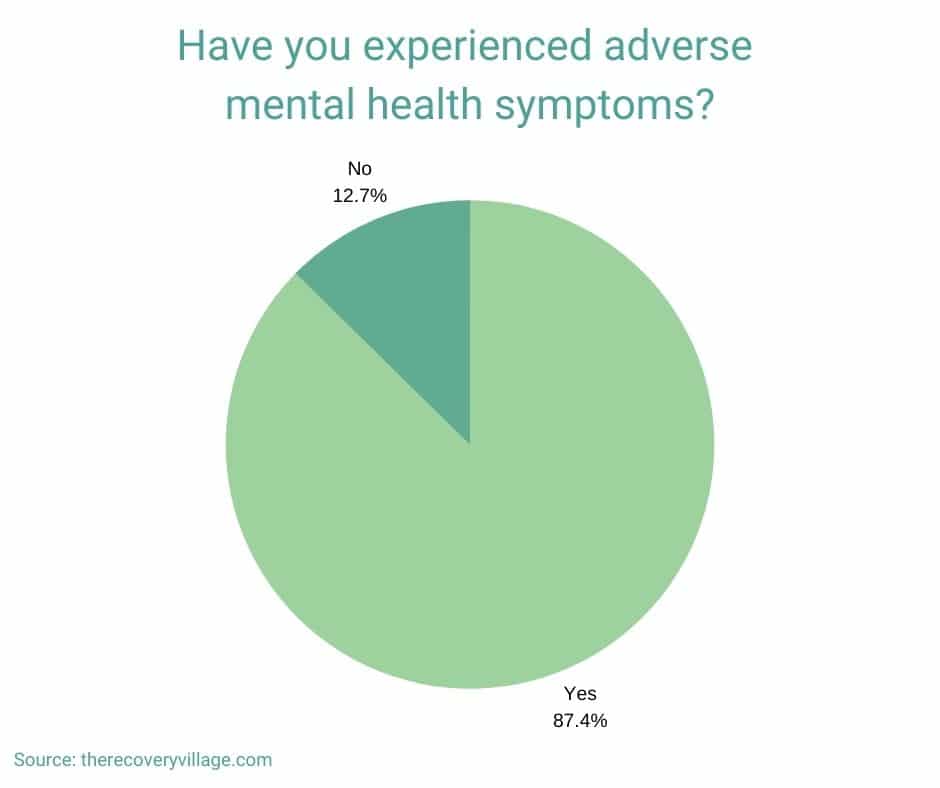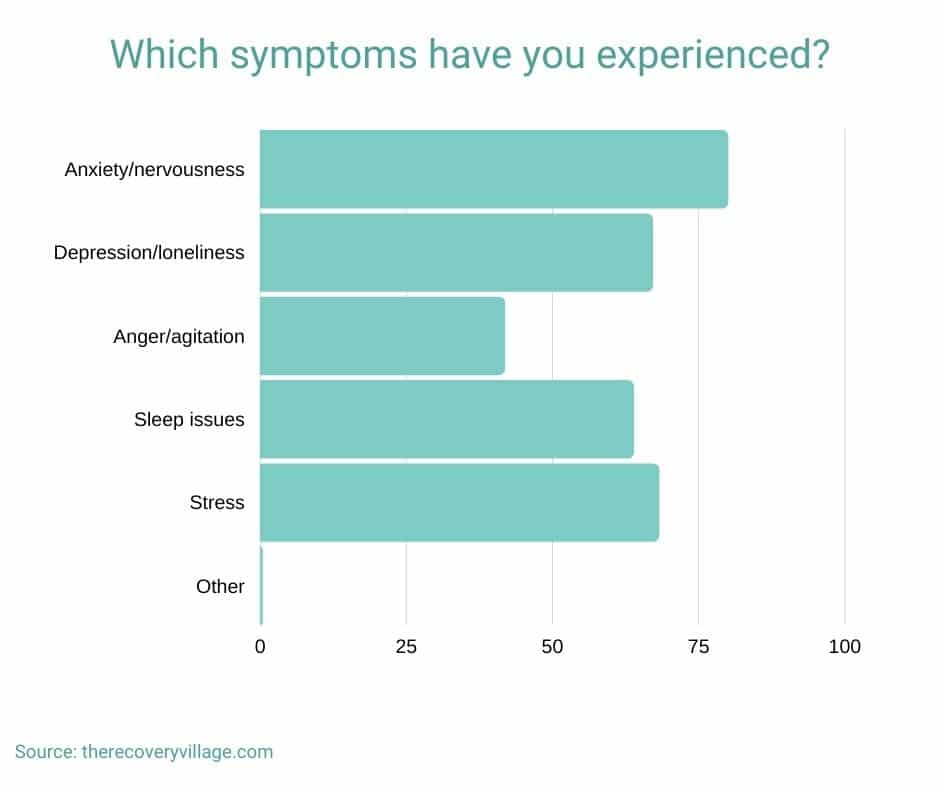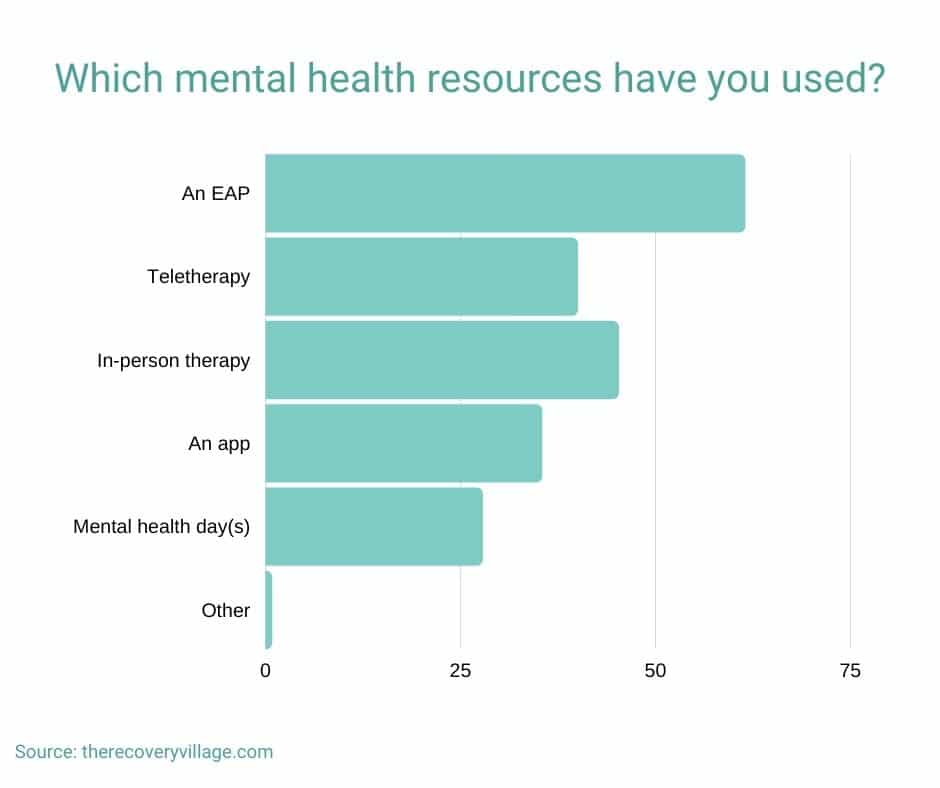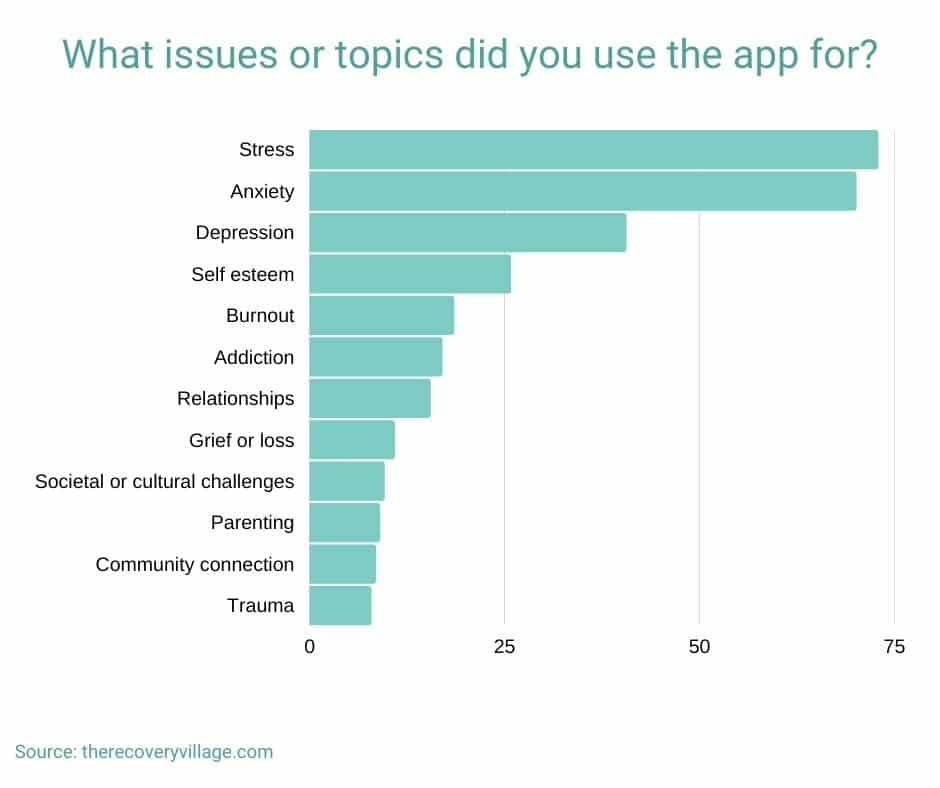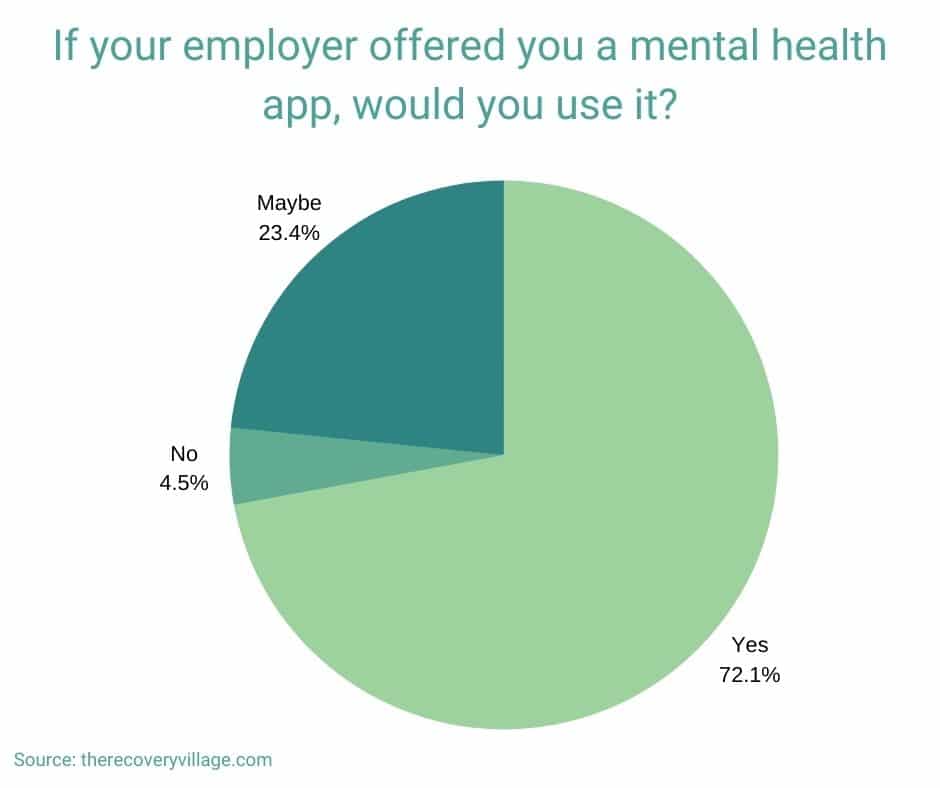Survey: U.S. Workers Using Mental Health Apps to Cope With Stress, Anxiety & Depression
In the wake of the COVID-19 pandemic, conversations about mental health have increased and more solutions to help improve mental health are emerging. Digital options, like apps and teletherapy, have proliferated during the pandemic in response to limited in-person options and rising anxiety in uncertain times. They are also a promising way to get mental health resources into the hands of those who need them, but may be limited by factors like cost or location.
To better understand current mental health trends, The Recovery Village surveyed 2,000 U.S. workers about their recent mental health and the resources they’ve used to manage mental health symptoms, including mental health apps.
The American Workforce Remains Anxious & Stressed
The Recovery Village surveyed 2,000 U.S. residents who are currently employed about their mental health during the past six months. Note: Some questions asked respondents to select each option that applied, so in a few instances, the total percentage will be greater than one hundred.
Respondents overwhelmingly reported experiencing mental health challenges.
- 87% reported experiencing mental health symptoms:
- 80% reported feelings of anxiety/nervousness
- 68% reported feeling stressed
- 67% reported depression or loneliness
- 64% reported sleep issues
- 42% reported anger or agitation
- 52% have been diagnosed with or treated for a mental health condition.
These results demonstrate an urgent need for mental health resources and effective solutions that translate into positive outcomes.
Apps Are an Emerging Solution to Mental Health Challenges
Survey respondents were asked about the kinds of mental health resources that they’ve used. While apps and teletherapy are relatively new options, workers are starting to rely on them to care for their mental health needs. Using an app (35.46%) was even more popular than taking time off for mental health concerns (27.84%).
Of those who used an app, stress and anxiety were by far the top reasons they chose to use the app.
- Stress (73%)
- Anxiety (70%)
- Depression (41%)
- Self-esteem (26%)
- Burn-out (19%)
- Addiction (17%)
- Relationships (16%)
- Grief or loss (11%)
- Societal or cultural challenges (10%)
- Parenting (90%)
- Community connection (9%)
- Trauma (8%)
App users found their mental health apps in a variety of ways. While seeing or hearing an ad was the most common reason someone decided to download/try an app, a majority of users said they tried an app due to a recommendation from a medical professional or because their workplace offered it.
Meeting the Need and Expectations in the Workplace
As the response to the COVID-19 pandemic continues to evolve, Americans will likely continue to experience stress and anxiety for the foreseeable future. We hope that the conversation around mental health will also continue to normalize mental health symptoms and conditions and break stigma for people who need help to cope with them. This includes the workplace.
While 87% of workers reported adverse mental health symptoms, only 58% said they’d used employer-provided mental health resources. Additionally, 61% said they’d be comfortable speaking with their boss or employer about a mental health issue. These results are encouraging but there’s room to grow. Many companies are already reporting increased spending in employee wellness. In order to maximize that investment, employers should also take care to adequately communicate availability and encourage employees to take advantage of the options provided to support positive mental health.
We know that people bring their whole selves into the job. When team members are struggling with their mental health, it not only impacts the individual, but can also affect their teammates and overall productivity. Additionally, mental health support is now an expectation not a bonus benefit. Our survey found 74% said they expected their employer to provide mental health resources.
If you’re struggling with mental health symptoms, make sure you’re turning to healthy coping strategies and trustworthy resources like Nobu. Nobu offers evidence-based programming and content that is created and backed by licensed mental health clinicians and other professionals.
If you’re interested in offering an app to your team, contact us to learn more about Nobu for businesses. (In our survey, 93% of respondents would use or consider using an employer-provided app.) We’ll work with you to provide an effective, reliable solution that offers a spectrum of resources to meet your team’s needs.
For press inquiries, email allison@therecoveryvillage.com.
- Wellable. “2021 Employee Wellness Industry Trends Report.” Accessed June 11, 2021.
